
Applying COVID-19 innovations to the future of MHS medicine
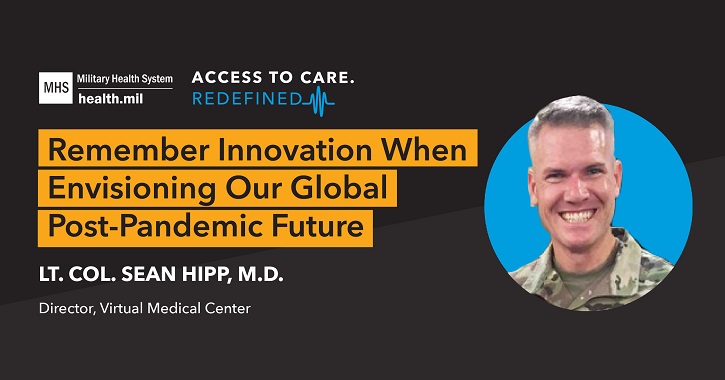
Virtual health visits are expanding in response to COVID-19.
"I would do anything to help my patients” and “I look forward to business as usual after COVID-19” – declarations many Military Health System providers worldwide would wholeheartedly agree with during the coronavirus pandemic. We give our best every day to ensure infected and non-infected alike get the treatment they need.
As we envision health care in a post-pandemic world, we can’t ignore that COVID-19 has already irrevocably changed how we deliver care and will continue to do so. We must use the terrible clarity these unprecedented circumstances provide to honestly evaluate our tools and practices, and apply that wisdom to make real, lasting improvements to health care.
This mindset of embracing innovation for the sake of our patients is already a hallmark of MHS providers. We find creative, clinically sound ways to treat our patients no matter the obstacle.
We are also in a prime position to lead by example in keeping the best of what we’re learning during COVID-19. The MHS is one of the largest health care systems in the world and has the tools, experience, logistical capacity and operational flexibility to do what many other health systems cannot. Our experience with global, 24/7, life-and-death medical crises means we can lead in innovation when it’s most needed.
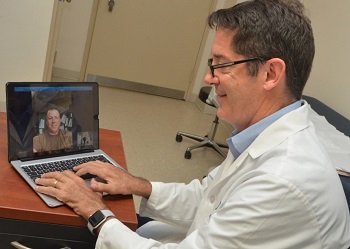
A MHS health care provider holds a virtual health visit with a patient.
Case in Point: Virtual Health
One way MHS providers can start adopting innovative practices right now during COVID-19 is through virtual health, also known as telehealth or telemedicine. The MHS offers ready-to-use virtual health capabilities that are effective, secure, accessible and compliant. In fact, the MHS Virtual Medical Center (VMC) has rapidly expanded scalable virtual health tools for military patients and medical personnel across the Services to ensure continuity of care during the COVID-19 pandemic.
The VMC serves as a hub for virtual health, enabling medical personnel in the field to connect with patients. It provides operational experience in delivering care around the world, working across international time zones, specialties and military service branches to get the right treatment to the right patient at the right time. The VMC is uniquely prepared to help providers and patients understand and use virtual health.
Working with the VMC allows providers to hit the ground running with tested tools and easy access to subject matter experts and training. The VMC workflows also efficiently connect providers with patients. Once they use virtual health, many providers find that they can do many appointments through a virtual health platform, with greater convenience and satisfaction for both them and their patients.
Extensive Resources
The resources available right now for incorporating virtual health into your practice include:
- The VMC: Any MHS provider or care team can request access to military virtual health platforms by accessing the VMC SharePoint site.
- Telemedicine Privileging:It is permissible for most MHS providers (to include personal services contract providers) to virtually care for patients located in a different state during COVID-19. Virtual care can occur outside a military medical treatment facility (MTF), such as at a patient’s home. A unique advantage for military medical personnel is that you can both be credentialed at your local facility and have privileges at the VMC. This pairing enables you to virtually access patients and their electronic health records at any MTF worldwide, a huge force multiplier.
- Your local MTF: Talk to your local MTF virtual health point of contact. If your MTF does not have one yet, the VMC can connect you to experts.
- ADVISOR Help Line: The Advanced Virtual Support for Operational Forces system, or ADVISOR, provides on-demand telephone and secure video consultations with specialty providers during emergencies. Originally designed for field personnel, ADVISOR now enables any MTF to get 24/7 live help with COVID-19 cases. Operators route calls to on-call MHS providers with operational experience in:
- Infectious disease (pediatric/adult)
- Palliative care
- Critical care (pediatric/adult)
Remembering for the Future
Virtual health is undeniably different from traditional practice and can take getting used to. The technological, logistical and even cultural hurdles we encounter in adopting it – or any new practice born of crisis – are worth overcoming to help ensure patients receive the care they need anytime, anywhere.
That is especially important to remember once things return to “the new normal.” One of the biggest mistakes we can make when a crisis abates is to forget why we needed to change in the first place, and to think that those changes applied just to that situation instead of informing our practice going forward.
Virtual health is going to be part of that future, to the point that in five years, we won’t be saying virtual health or telemedicine, just -- medicine.
We need to learn from our COVID-19 experience and change our tools, processes and workflows as needed so we are better prepared for all world-changing incidents, not just the next pandemic. If we do, we will show that when we say “we’ll do anything for our patients,” we really mean it.
Life support training continues for MHS clinical staff
Article
7/14/2020
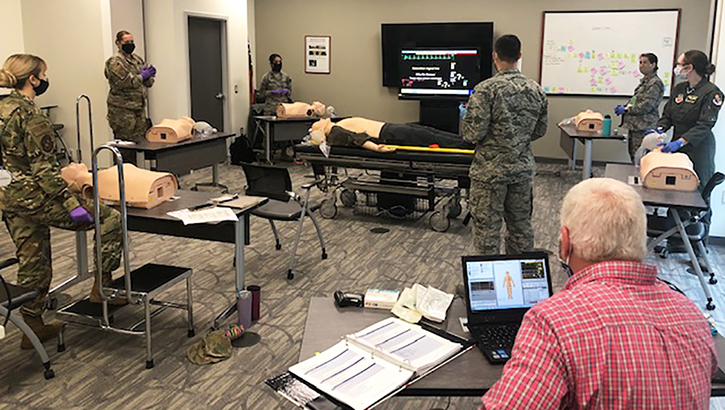
How do clinical staff social distance and deliver CPR training?
U.S. military deploys to Texas and California in support of COVID-19 operations
Article
7/14/2020
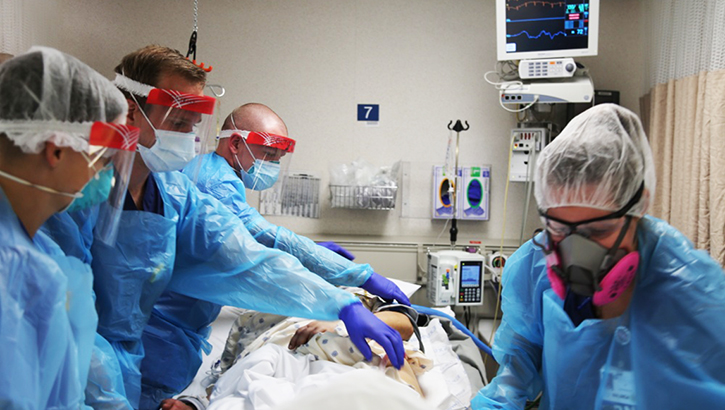
[A]pproximately 740 Department of Defense medical and support professionals from the Army, Navy and Air Force deployed to support COVID-19 operations in Texas and California.
COVID-19 Asymptomatic Testing Clinic opens at NMRTC Bremerton
Article
7/13/2020
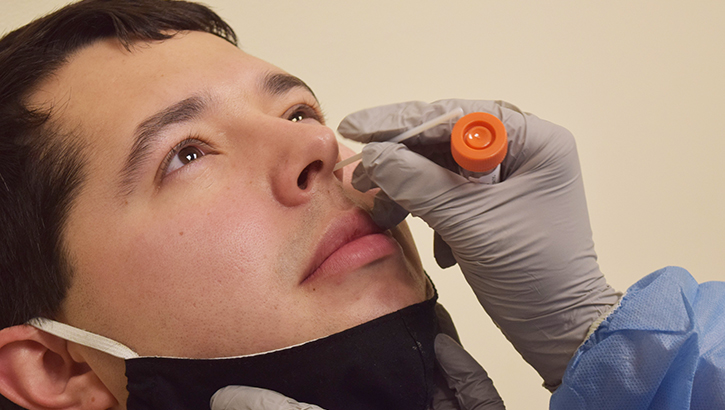
[S]tanding up the CAT clinic will assist in identifying asymptomatic COVID-positive individuals and assist the continual effort to stop the spread of the pandemic.
Convalescent Plasma Donation PSA featuring Lt. General Place
Video
7/10/2020
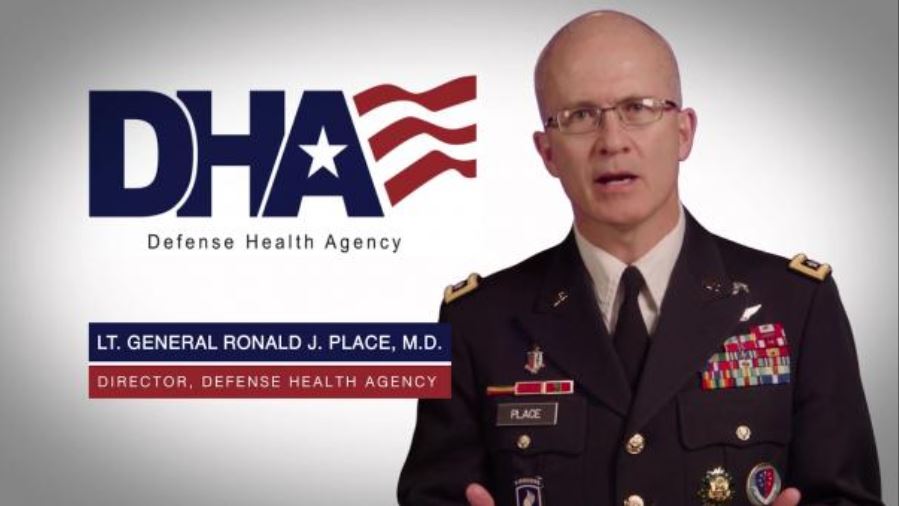
Lt. Gen Place asks servicemembers DoD-wide to consider dontating plasma in the fight against COVID-19.
For some, working from home brings neck and back pain
Article
7/10/2020
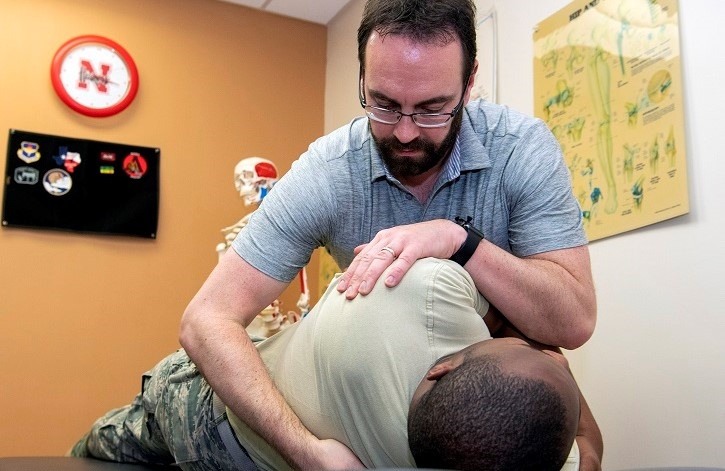
"[T]he most common complaint of teleworkers is neck and upper back pain between the shoulder blades."
DHA's new app assists providers with treating infectious diseases
Article
7/10/2020
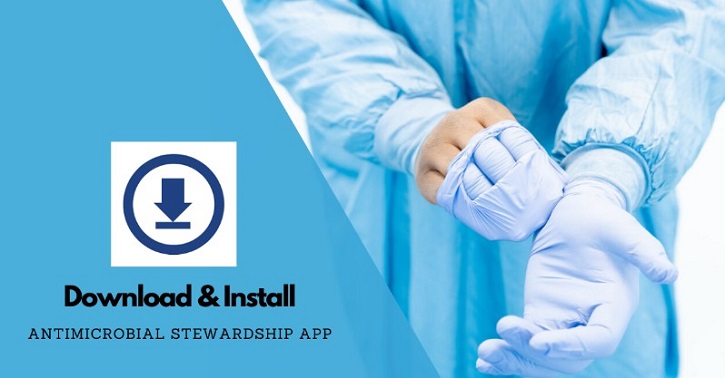
This progressive web application provides faster updates to content and function than traditional apps.
New Invention Helps Protect Healthcare Workers During COVID-19 Pandemic
Article
7/9/2020
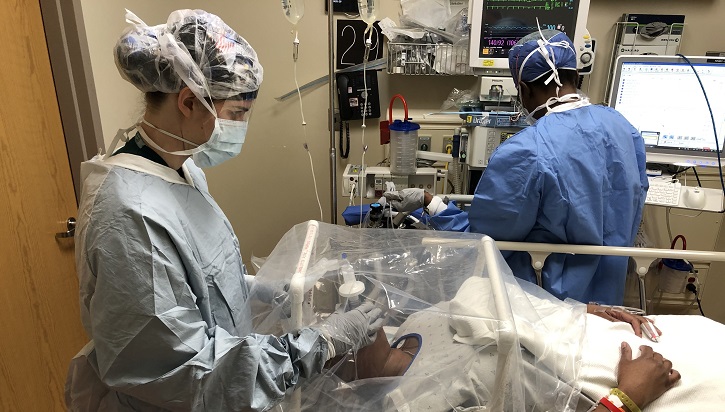
"[T]he team realized that while the CAMIC would function well for tracheostomy, its true use would be for intubation..."
Defending the Homeland: Fort Knox Safety Official Donates COVID-19 Convalescent Plasma to Help Others
Article
7/8/2020
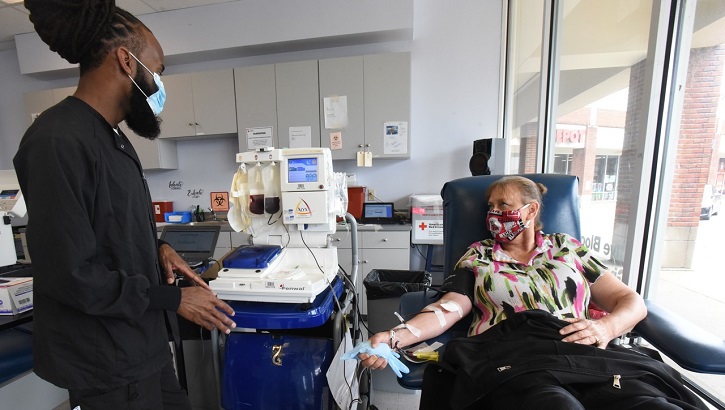
[T]he process involves a machine that uses three bags to collect and separate the plasma from the blood.
Summer’s here – stay safe!
Article
7/8/2020
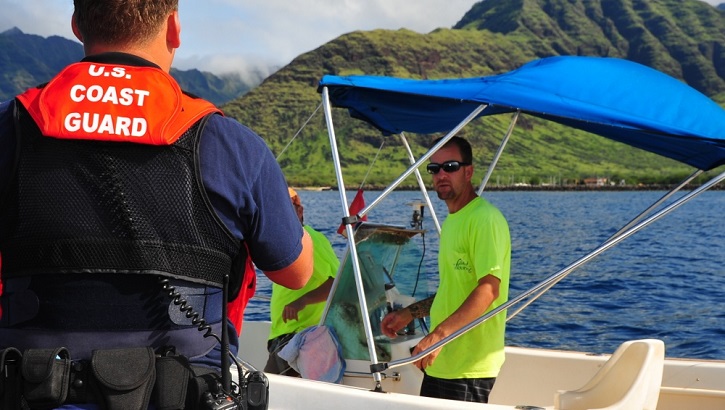
Remember these tips while enjoying the summer
USU Genetics Researchers Receive National Award for Cancer Genome Work
Article
7/7/2020

The Cancer Genome Atlas Project began in 2006 as a joint effort between the National Cancer Institute (NCI) and the National Human Genome Research Institute.
Combat stress techniques help military providers during COVID pandemic
Article
7/6/2020
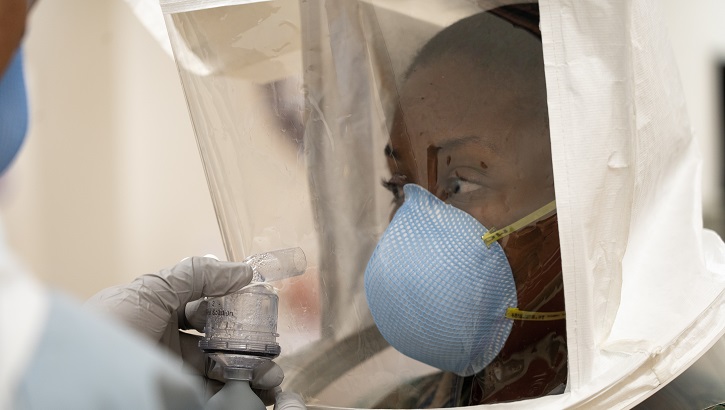
6 steps to get medical team members back in the fight
Army & Navy providers team up to save soldier’s life
Article
7/6/2020
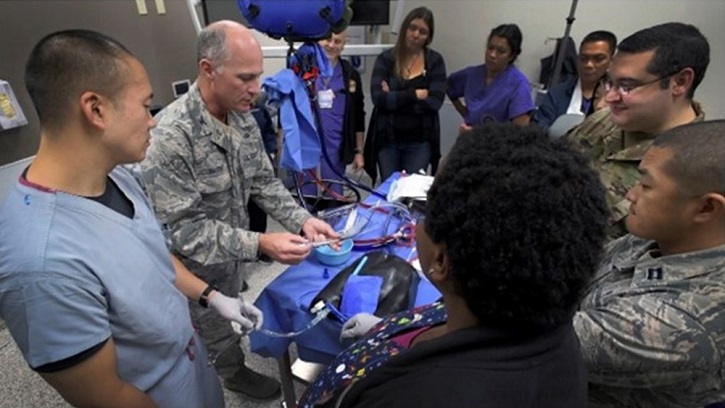
ECMO is a heart-lung bypass system that circulates blood through an external artificial lung, oxygenates it, and delivers it back into the bloodstream.
Pentagon leaders brief department's COVID-19 response to reporters
Article
7/2/2020
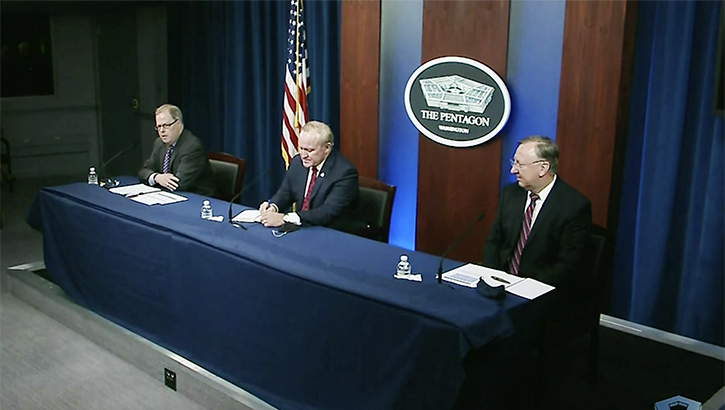
The COVID-19 pandemic affects each area of the nation differently. Local leaders at military installations decide protocols for public safety on a case-by-case basis. The Military Health System supports those leaders by providing health surveillance data, updated to reflect current information.
Confronting the Coronavirus and Countering Complacency
Article
7/2/2020
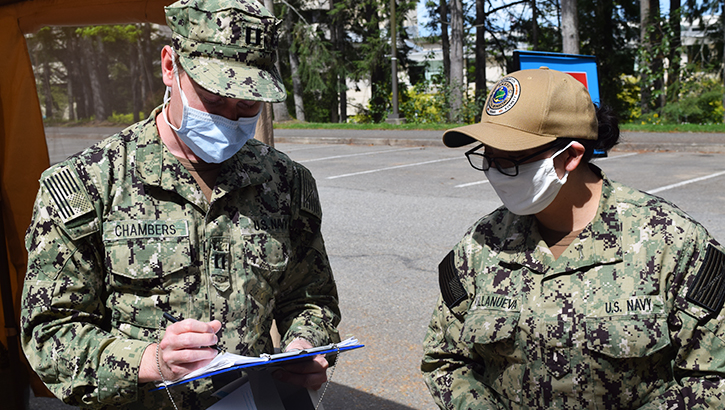
Call it the COVID-19 complacency conundrum.
U.S. Naval Hospital Guam Collects Convalescent Plasma from Sailors
Article
7/2/2020
.ashx?h=68&la=en&mw=120&w=120&hash=0B5A7CC2C0FF6A6ED4927F1CA04D78C26FD98BD868607C5947D4B87BBCEA9905)
The CCP is the liquid part of blood from patients who have recovered from an infection.





















.png)












No hay comentarios:
Publicar un comentario